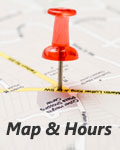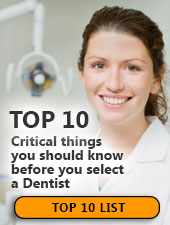Call (602) 992-1384
Child Dental Emergencies
Uh-oh! A Dental Emergency! If a dental emergency should happen to your child, please remember to act quickly. Stay calm - a parent's apprehension can be transmitted to the child. Bring the child to us with the tooth replanted or kept moist in transit. We'll take care of you immediately.
A child, learning to ride a two-wheeled bicycled, loses her balance, falls, hits a rock and knocks out a front tooth. What do you do?
If the tooth is replaced in the tooth socket immediately, the chances are good that this tooth can be maintained for many years.
Do something and do it now
The success of this replantation procedure is directly related to how soon the tooth is replaced in its socket. If possible, just rinse the tooth with tap water and gently replace the tooth in its socket and come to the office. Otherwise, wrap the tooth in a clean, moistened cloth-or put it in a cup of water or milk-and get to the dentist, now. Never scrape the tooth or allow it to dry out.
Remember, time is of the essence
If the tooth is left out of the mouth for more than 30 minutes, the chance for successful replantation drops significantly.
We consider replantation successful if we can keep the tooth in position at least during a child's growth period. By maintaining the space, the replanted tooth prevents tipping of adjacent teeth. If it's necessary to replace the injured tooth, it's much easier to do it when the child is older - when all the permanent teeth are in.
The good news is that we have bonding and dental implant techniques today for tooth replacement-and new materials to fill in for a lost tooth.
Call for an appointment:
(602) 992-1384
Make an Appointment
Don't Forget to Floss!
Clean between teeth daily with floss or an interdental cleaner. Decay-causing bacteria can hide between teeth where toothbrush bristles can't reach. Flossing helps remove plaque and food particles from between teeth and under the gum line.
Visit Our Office Regularly!
Take good care of your smile. Remember to visit the dentist regularly for professional cleanings and oral exams.
Mouthwash Is Important, Too!
Brushing and flossing may not be enough. The ADA now recommends using an antimicrobial mouthwash to reduce plaque and prevent gingivitis.






